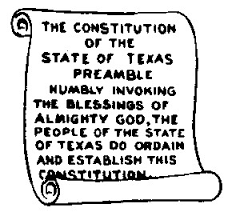Yes, you will have a reason to vote this May. It’s a statewide special constitutional amendment election, thanks to the most recent special session. Here’s what’s on tap.
Voters will head to the polls starting April 25 to decide whether to cut property taxes for homeowners by an average $176 a year and provide additional tax savings for elderly and disabled Texans.
There are two proposed constitutional amendments on the ballot. Election Day is May 7.
Proposition 1 would approve the tax cuts for elderly and disabled homeowners beginning in 2023, while a second measure seeks to raise the state’s homestead exemption from $25,000 to $40,000, lowering school property taxes.
State Sen. Paul Bettencourt, a Houston Republican who championed both amendments, has said the first proposal would offer relief for about 1.8 million seniors and 180,000 homeowners with disabilities, amounting to roughly $220 million in savings in 2024.
The increased homestead exemption for schools, meanwhile, would save homeowners about $176 annually starting this year, he said. Actual savings would vary depending upon local tax rates.
[…]
Current law freezes school property taxes for most homeowners when they turn 65, and those with disabilities receive the same benefit when purchasing a new property. The proposed change would lower their bills.
“Over-65 homeowners will see their freeze values actually decline, and lifetime savings from both bills in the many thousands,” Bettencourt said.
The second proposal was a compromise after state lawmakers tossed earlier plans to use federal COVID-19 funds to offer a one-time check to Texans who claimed homestead exemptions on their property.
A larger homestead exemption, which is Prop 2, is something I’ve advocated before in the past as a better and more equitable way to reduce property taxes. I’ll vote for that one. Prop 1 hinges on the state boosting its contribution to public education funding, which had been declining as a share of the overall pot of education monies. On the one hand, I’m always wary of this sort of thing because the tendency is just to move money from one budget item to another rather than try to grow revenue to meet growing need. On the other hand, if it’s public education that winds up with a bigger piece of the pie as a result, well, there are worse outcomes. I’ll wait and see on this one, which if you’re keeping score isn’t an outright No.
If all this sounds relatively simple, take comfort in knowing that the actual ballot language is epically ugly, requiring a PhD in Lege-speak to understand it.
For Prop 1, in the voting booth for the May 7 election you’ll be looking at 77 words of incoherency. Ready? I apologize ahead of time. Here it is:
“The constitutional amendment authorizing the legislature to provide for the reduction of the amount of a limitation on the total amount of ad valorem taxes that may be imposed for general elementary and secondary public school purposes on the residence homestead of a person who is elderly or disabled to reflect any statutory reduction from the preceding tax year in the maximum compressed rate of the maintenance and operations taxes imposed for those purposes on the homestead.”
Who wrote this monstrosity? Answer: The Texas Legislative Council, which helps lawmakers write their bills.
I called the TLC and talked briefly to general counsel Jon Heining. I asked him why all the gobbledygook?
“Oh, no,” he replied. “We would never explain why we did something. Absolutely not. All of the services we provide for the Texas Legislature are confidential. We don’t comment on the work we do.”
He said his group is publishing a guide to the text in the next few days.
That author asked Sen. Bettencourt about it as well, and got more or less the same response as above. Like I said, I’ll vote for Prop 2 and will wait for more feedback on Prop 1. You should look for more guidance on it as well.


Pingback: Texas blog roundup for the week of April 4 – Off the Kuff